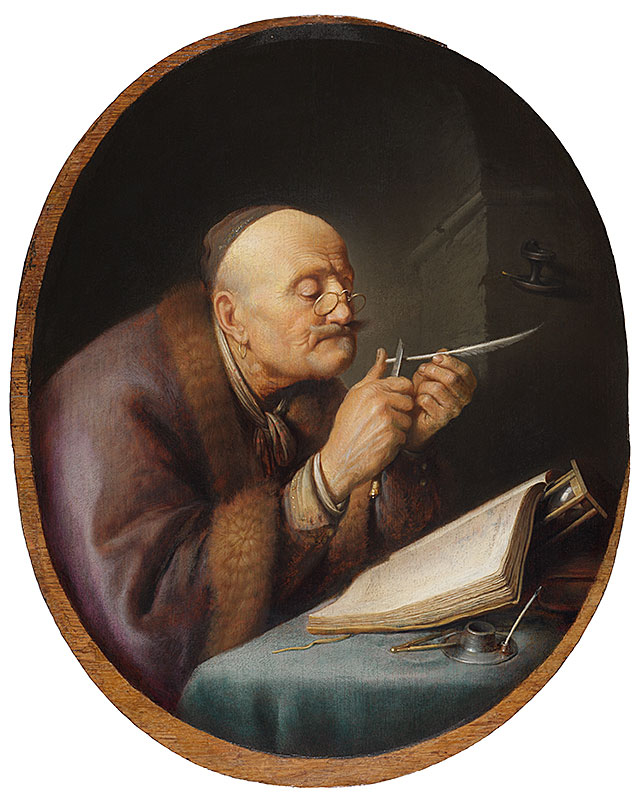..Men are not such sots nowadays as they were in the days of yore..
Author of the book ''Le cinquiesme et dernier livre des faicts et dicts héroïques du bon Pantagruel'' (c.1564.) in his prologue raises and solves interesting question that is still on the minds of many a member of our modern day respectable general public.
Well, honestly, weren't those people in the past a bit stupid?
Had they even iron, or any metal at all back in middle ages?
They built such a huge windows in this castle, but certainly hey did not have glass at such an early time (let''s say 1400)!
They did not wash and there were lice, rats and pest everywhere.
..And so on... [Always remember that ''they'' were your own grand, grand, grand [..] grandfathers and grandmothers].
And here an excerpt from aforementioned prologue:
''Pray, why is it that people say that men are not such sots nowadays as they were in the days of yore? Sot is an old word that signifies a dunce, dullard, jolthead, gull, wittol, or noddy, one without guts in his brains, whose cockloft is unfurnished, and, in short, a fool. Now would I know whether you would have us understand by this same saying, as indeed you logically may, that formerly men were fools and in this generation are grown wise? How many and what dispositions made them fools? How many and what dispositions were wanting to make 'em wise? Why were they fools? How should they be wise? Pray, how came you to know that men were formerly fools? How did you find that they are now wise? Who the devil made 'em fools? Who a God's name made 'em wise? Who d'ye think are most, those that loved mankind foolish, or those that love it wise? How long has it been wise? How long otherwise? Whence proceeded the foregoing folly? Whence the following wisdom? Why did the old folly end now, and no later? Why did the modern wisdom begin now, and no sooner? What were we the worse for the former folly? What the better for the succeeding wisdom? How should the ancient folly be come to nothing? How should this same new wisdom be started up and established? ''
[..]
''You are not yet disposed to give me an answer; nor I neither, by these whiskers. Yet to give some light into the business, I'll e'en tell you what had been anciently foretold in the matter by a venerable doctor, who, being moved by the spirit in a prophetic vein, wrote a book called the Prelatical Bagpipe. What d'ye think the old fornicator saith? Hearken, you old noddies, hearken now or never.
The jubilee's year, when all like fools were shorn,
Is about thirty supernumerary.
O want of veneration! fools they seemed,
But, persevering, with long breves, at last
No more they shall be gaping greedy fools.
For they shall shell the shrub's delicious fruit,
Whose flower they in the spring so much had feared.
Now you have it, what do you make on't? The seer is ancient, the style
laconic, the sentences dark like those of Scotus, though they treat of
matters dark enough in themselves. The best commentators on that good
father take the jubilee after the thirtieth to be the years that are
included in this present age till 1550 (there being but one jubilee every
fifty years). Men shall no longer be thought fools next green peas season. ''
